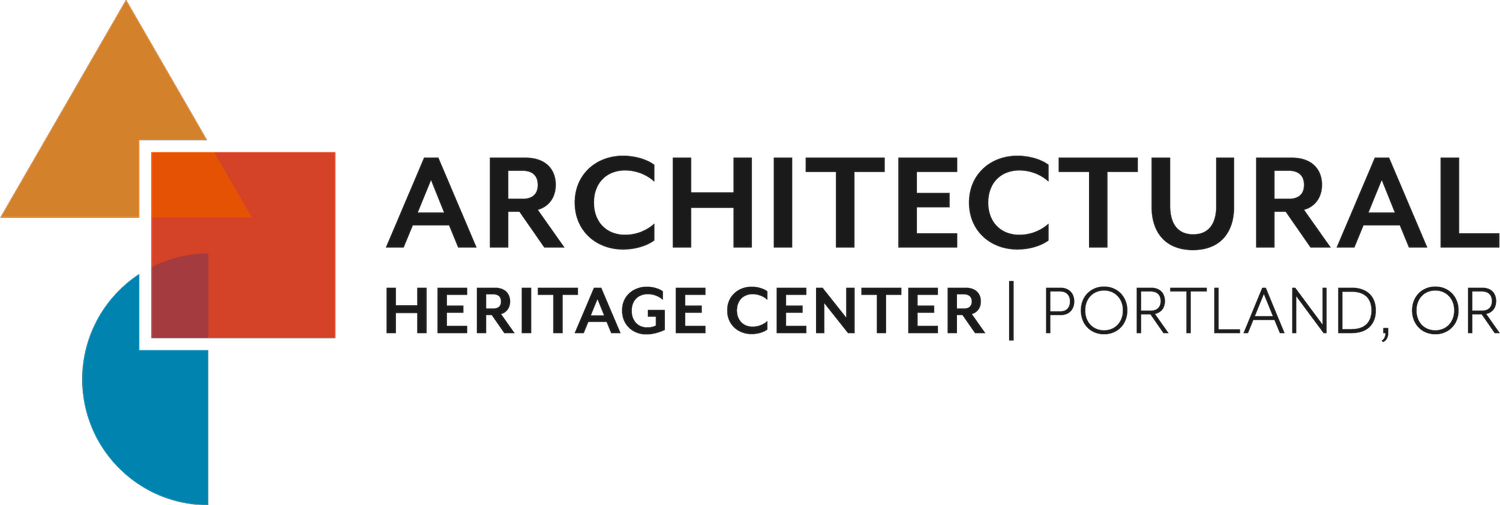2024 ARCHITECTURAL HERITAGE CENTER CANDIDATE SURVEY RESPONSES
Terrence Hayes Candidate for City Council in District 1
LIVABILITY: Stewardship of Portland’s built environment is a key quality of life issue. The preservation and reuse of existing buildings is an important component of sustainable development and helps to maintain strong, livable communities.
Q1
Agree: While we need to embrace newcomers to Portland and new development, it doesn't mean get rid of the old. Portland has a rich history and many people flock here from other places to see that history. And we absolutely need to be sustainable about how we are building or improving developments.
ADAPTIVE REUSE: Do you think the conversion of empty or underused commercial buildings (e.g., offices or warehouses) into new uses can advance two important objectives:
a. alleviate Portland’s affordable housing shortage;
b. help to revitalize the city’s downtown.
Q2
Agree: Absolutely. I really think youth aging out of foster care and the recovery community would appreciate dormitory-style community housing, which seems like an easier way to look at trying to convert some office buildings, and housing that is sorely needed in our community.
SUSTAINABILITY & CLIMATE: Building reuse, instead of demolition and replacement, equates to taking thousands of cars off the road (EcoNorthwest Study). Promoting reuse should be an important component of achieving Portland’s sustainability goals.
Q3
Agree: We should absolutely be looking at ways to reuse existing buildings to lighten our carbon footprint.
FINANCIAL INCENTIVES: To make building conversion and reuse economically feasible, many believe we need better financial tools, such as a state rehabilitation tax credit – a tool used by 39 other states. Would you support making that a priority on the City’s legislative agenda?
Q4
Yes: I would need to learn more about this, but I love to learn and it sounds like a reasonable tool. I am seeking ways to incentivize any and all development in Portland.
DEVELOPMENT IMPACTS: We need more affordable housing. However, proposed zoning changes (e.g.significant increases to building height and scale) can incentivize demolition, displacement, gentrification, and erasure of cultural heritage. How concerned are you about these potential negative consequences?
Q5
Very concerned: While I do think overall we need to assess the urban growth boundary and building heights, it needs to be done carefully and meticulously as to not destroy certain historical attractions and heritage of neighborhoods or business districts.
PLANNING KNOWLEDGE: How familiar are you with Portland’s Comprehensive Plan, zoning codes, land use regulations, and current policies for historic properties?
Q6
Not so familiar: I am a student - I love to learn and am attending the 2-day Oregon Housing Conference Sept 24 & 25th as part of my development in this area. I want to learn all that I can about all types of housing and building codes. I like to look at every angle of an issue so I can truly understand where all parties are coming from before making huge decisions that affect others.
INFILL DEVELOPMENT: In Portland’s historic areas, it’s important that new infill construction fit with surrounding context and retain the districts’ unique qualities and identity.
Q7
Neutral: I think this can be on a case-by-case basis. I think I felt a certain way about a lot of newer buildings in Portland over the last few years, but they've since grown on me. We can't oppose everything, but sometimes it does make sense in our little historic pockets of neighborhoods.
CONSERVATION OF PORTLAND “MAIN STREETS”: Portland’s unique identity is due in large part to its many distinct and diverse neighborhoods and “streetcar-era main streets.” Many were the original main street when these areas were separate cities before being annexed into the larger City of Portland. Recent rezoning, increased height limits and no historic protections make these areas vulnerable to demolition. Would you support the creation of mini-Conservation Districts (typically 1 or more blocks) to help retain these iconic commercial main street centers?
(For Reference: Conservation Districts have greater flexibility than Historic Districts given that they still allow for growth and change but can support more context-sensitive development. New Conservation Districts would have demolition review for contributing resources, objective design standards, and the height limit of the zone).
Q8
Not sure: I never want to promise being against something, especially when I don't know enough about the topic. This sounds reasonable, but I would need to learn more.
TOURISM: Historic buildings and public spaces are a significant economic asset as a major attraction for tourism. What priority should this be given when planning and setting policy?
Q9
High: Tourism should be one of our highest priorities in rebuilding our economy in Portland and Oregon, and we absolutely need to ensure historic buildings that are bringing people to Portland are kept safe.
BONUS: Tell us your favorite building, neighborhood, or place in Portland.
Q10
RESPONSE: Chinatown





